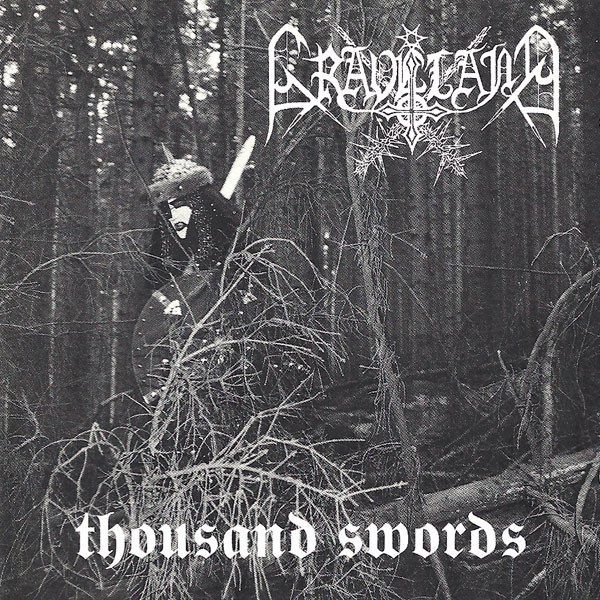Graveland
The Celtic Winter (1996)

Graveland on The Celtic Winter passionately conveys the lost ancient concepts of Strength and Honour. The jarring atonal passages cut into each other, like foes in armed conflict, but are reconciled by waltz-like synth that act as a dream-space. These melodic segments unify the songs like lost wisdom unveiling itself from the battle fog, the reason for war, a need to fight for what is right, the central idea of the war itself. This simplistic music flows deep into the soul in same way that Ildjarn does by utilising an honest, organic aesthetic that ignores the fads of contemporary artists, preferring to bear its teeth with the determination of the warrior spirit. Gritty, unrelenting music that shows no sympathy for the weak.

Thousand Swords (1994)

Thousand Swords was not only a unique album in Graveland’s lengthy discography, but also in the whole of Metal. There is not much that comes close to sounding like this. At the time of release it was the first Graveland album in a series which saw the transition of Graveland’s sound from the rawer, nastier sounding Black Metal of their earlier days to the more epic Pagan Metal of their mid-career. Much of the uniqueness comes from the distinct traditional folk nature of the guitar playing, which has little to do with the Norse bands (unlike much of the genre at the time). Whilst there were other bands who incorporated folk melodies into their Pagan Black Metal, such as the Blazebirth Hall bands from Russia (such as Branikald) many of these still had a strong foundation of bands such as Burzum or Darkthrone to their sound.
The production sound is thin, but fairly clear, and whilst an untrained ear to Metal may find it ‘lo-fi’ it is not remarkably compared to a lot of Graveland’s peers. In terms of guitar playing, there is not much that can be distinctly traced back to other Metal outside of the dark mood that envelops the music. The guitar melodies are almost solely based on Polish folk music that has been darkened and is played in minor key arrangements. They however retain that certain feeling of ‘traditional folk dance’ music of the past, that ringing, twirling nature as the melody moves up and down the scale. The dance here though, is not so much the joyful, happy dancing of festivity, but the dance to the death found in fierce battle. Emphasising this further is the drumming. It is also not as snare dominant as a lot of other extreme Metal music, and there is lots of riding the cymbals and high-hats to create both a galloping rhythmic beat (like cavalry) and also a ringing clashing sound which doubly sounds like sword fight and also underlines the striking nature of the folk melodies. Darken’s vocals are unmusical croaks and low-garbled emanations, but do capture the sound of a warrior in the midst of battle, bloodthirsty and desperate.
This is all well and good, aesthetic means very little without a good song-writing foundation. Luckily Graveland are fairly adept at this too. Much has been made of the Wagnerian influence found in Graveland’s (or Darken’s), and admittedly like most comparisons between Metal and Western Art Music this is a bit overblown. However there are distinct melodic “themes” on Thousand Swords that recur throughout each song and appear in different guises. This allows for such melodic ideas to be contrasted against different moods which assists in giving the songs a sense of development. As the album goes on it becomes more and more introspective. There is a growing sense as the album progresses that the music is less about war/battle as a whole than it is about the individual in battle. The feeling of sacrifice that comes with fighting for a cause, the sense of death surrounding the warrior as he is amidst the enemy and the meaning that these things provide as his life slowly disappears as he lies defenceless on the battlefield, bleeding to death amongst the gore and mud. It is a personal meaning - something that disappears as the last drop of blood stains the ground - but also something, as fleeting as it is in reality, connects men with each other in unseen bonds for which they feel is worth dying to maintain.

Comments
Post a Comment